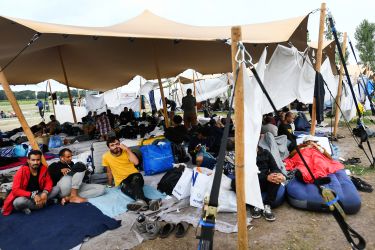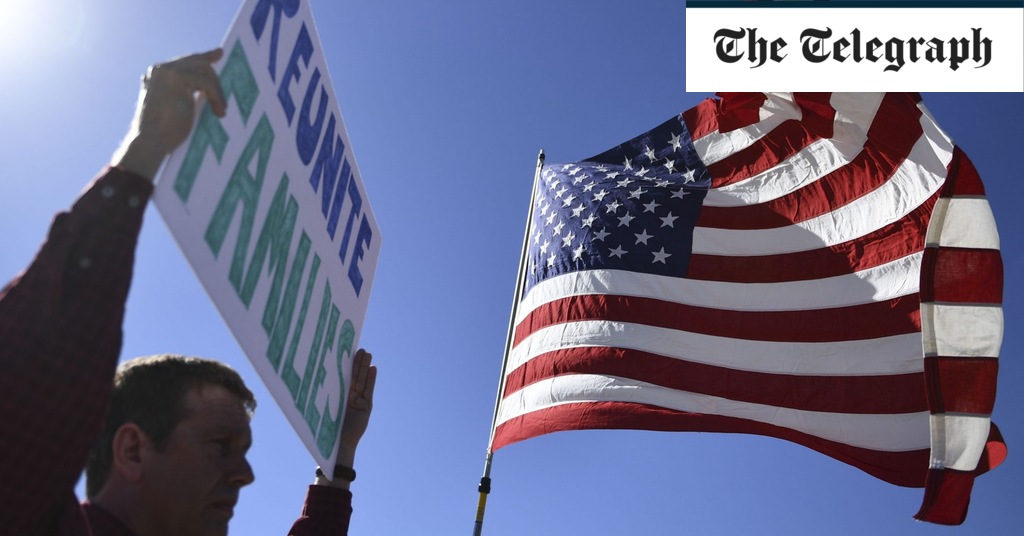Netherlands Plans Area Bans For Troublesome Asylum Seekers

Table of Contents
The Rationale Behind the Proposed Area Bans
The Dutch government justifies the proposed area bans primarily on grounds of public safety and maintaining public order. The argument centers on the assertion that increased crime rates in certain areas are linked to the behavior of specific groups of asylum seekers. This, coupled with incidents of social unrest and community disruption, strains local resources and services. The government emphasizes its commitment to ensuring public safety for all citizens and argues that these area bans represent a necessary measure to address problematic behavior and prevent further escalation.
- Rising crime rates: Official statistics, while debated, point to a correlation between certain neighborhoods and an increase in specific types of crime, sometimes attributed to asylum seeker populations. However, critics argue that these statistics do not adequately account for socioeconomic factors.
- Social unrest and disruption: Instances of social unrest, such as public disturbances or conflicts with local residents, are cited as justification for the need for stricter measures. The government argues that these incidents necessitate proactive intervention.
- Strain on local resources: The influx of asylum seekers places a strain on local resources, including housing, healthcare, and social services. The government contends that problematic behavior further exacerbates this strain.
- Public safety: The overarching argument is the government's responsibility to ensure the safety and security of all its citizens, which includes addressing disruptive behavior wherever it occurs.
- Effective measures: The government argues that while other approaches are being explored, area bans represent a targeted and effective measure to address the most serious cases.
Details of the Proposed Area Ban Policy
The specifics of the proposed area ban policy remain under development, but key aspects are emerging. The legal framework will likely outline criteria for designating an asylum seeker as "troublesome," including repeated offenses or serious breaches of public order. Geographic areas targeted will likely be those experiencing the highest levels of reported incidents. The duration of the bans, and the appeals processes available to those affected, are critical considerations currently being debated.
- Criteria for "troublesome" designation: This will likely involve a combination of factors, including criminal convictions, repeated violations of local ordinances, and disruptive behavior. However, the precise criteria and their application remain a source of concern.
- Geographic scope: While specific locations haven't been publicly identified, areas with known higher concentrations of asylum seekers and reported incidents of crime and unrest are likely candidates.
- Duration of bans: The length of the area bans is yet to be determined, with potential variations based on the severity of the offense and the individual's behavior.
- Appeals process: A robust and fair appeals process is crucial to safeguard against potential abuses and ensure due process. Details of this process remain to be finalized.
- Oversight mechanisms: Independent oversight is necessary to prevent discriminatory enforcement and ensure the policy is implemented fairly and consistently.
Criticisms and Concerns Surrounding the Policy
The proposed area bans have faced significant criticism from human rights organizations, legal experts, and social advocacy groups. Concerns center on potential human rights violations, the potential for discriminatory enforcement, the limited effectiveness of such measures, and the negative social impact on the integration of asylum seekers. Critics argue that alternative solutions focusing on support services and integration programs should be prioritized.
- Potential for discrimination: There are concerns that the criteria for designating someone as "troublesome" could be applied disproportionately to asylum seekers, leading to discriminatory enforcement.
- Impact on integration: Area bans could severely hinder the integration of asylum seekers into Dutch society, isolating them and limiting their access to essential services and opportunities.
- Lack of evidence: Critics point to a lack of evidence supporting the effectiveness of area bans in addressing the underlying issues contributing to problematic behavior.
- Alternative approaches: Investing in more robust support services, including language training, job placement assistance, and cultural integration programs, are suggested as more effective long-term solutions.
- Increased social tension: The policy risks exacerbating social tension and division within communities, fostering resentment and hindering genuine integration efforts.
Potential Human Rights Implications
The proposed area bans raise serious human rights concerns, potentially violating fundamental rights guaranteed under international law and the European Convention on Human Rights. Restrictions on freedom of movement must meet a strict test of necessity and proportionality. Concerns exist that the policy might violate the right to due process, particularly regarding the criteria for issuing bans and the availability of effective appeals. The proportionality principle requires that any restrictions on rights are proportionate to the legitimate aim pursued—in this case, public safety. The European Court of Human Rights' jurisprudence will be crucial in determining the legality and compatibility of such a policy.
Conclusion
The Netherlands’ plan to introduce area bans for troublesome asylum seekers represents a significant shift in its immigration and refugee policy. While the government aims to address public safety concerns and maintain public order, the proposal has sparked intense debate due to its potential for human rights violations, discriminatory enforcement, and limited effectiveness. Critics argue that investing in comprehensive integration programs and support services offers a more effective and humane approach. The implementation of area bans, if enacted, will require careful monitoring and a robust appeals process to ensure compliance with international human rights standards. Learn more about the Netherlands’ evolving asylum seeker policy and stay informed about the ongoing debate surrounding area bans for troublesome asylum seekers. What are your thoughts on the Netherlands’ approach to managing problematic behavior among asylum seekers? Share your opinion on the effectiveness of area bans as a solution.

Featured Posts
-
 Possible Successors To Pope Francis Leading Candidates For The Papacy
May 11, 2025
Possible Successors To Pope Francis Leading Candidates For The Papacy
May 11, 2025 -
 Parliament Demands Halt To Undocumented Labor Migration
May 11, 2025
Parliament Demands Halt To Undocumented Labor Migration
May 11, 2025 -
 Will There Be A John Wick 5 Keanu Reeves And The Future Of The Franchise
May 11, 2025
Will There Be A John Wick 5 Keanu Reeves And The Future Of The Franchise
May 11, 2025 -
 Active Retirement Senior Trips Activities And Events Calendar
May 11, 2025
Active Retirement Senior Trips Activities And Events Calendar
May 11, 2025 -
 Dansk Melodi Grand Prix 2025 Sadan Stemmer Du
May 11, 2025
Dansk Melodi Grand Prix 2025 Sadan Stemmer Du
May 11, 2025
